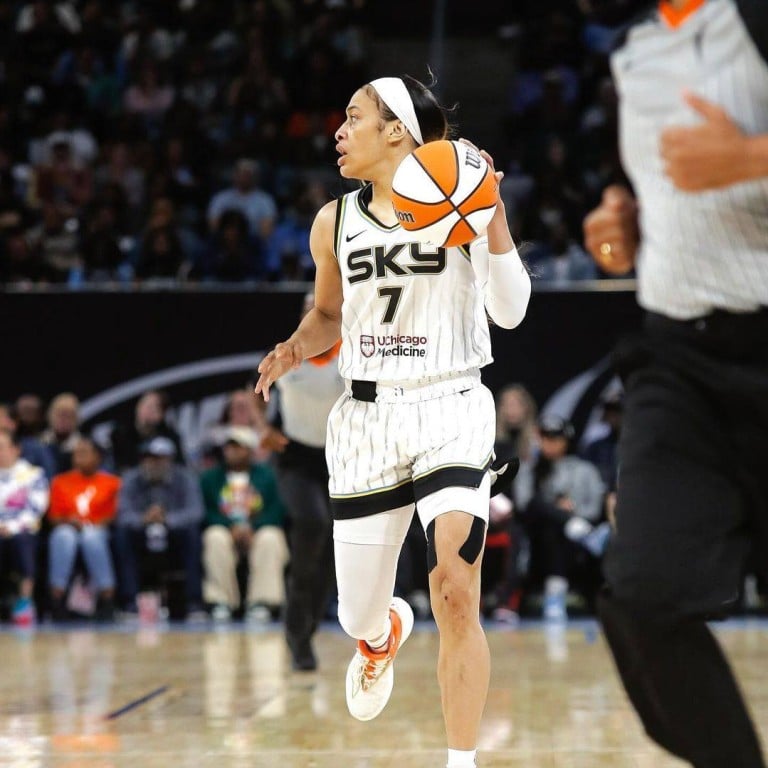Who is WNBA star Chennedy Carter, who badly fouled Caitlin Clark: the Chicago Sky guard idolised Allen Iverson and was dropped by two teams – but why did Whoopi Goldberg defend her?

- A young Chennedy Carter wanted ‘swagger’ like her hero, Allen ‘The Answer’ Iverson, and her father and 3 brothers helped her become the skilled and aggressive player she is today
- But Carter brushed off criticism of her flagrant foul of Clark, and was previously suspended for ‘detrimental conduct’ by the Atlanta Dream
Nicknamed “Hollywood” since high school, Chennedy Carter is a WNBA star whose aggressive style has been raising eyebrows recently. Before the Atlanta Dream drafted her as the No 4 pick in the 2020 WNBA draft, she enjoyed a stellar college basketball career. The highest-drafted player in Texas A&M Aggies history, Carter finished in the top 10 of multiple statistical categories, per The New York Times. At 22, she set a new WNBA record for the youngest player to score more than 30 points.
Lately, however, the 25-year-old shooting guard has been in the headlines for the wrong reasons, drawing flak for her flagrant foul of star rookie Caitlin Clark. And it’s not the first time she’s had issues with discipline. Carter was dropped by two WNBA teams before the Chicago Sky signed her.
So what exactly has Chennedy Carter been doing, and how did she become the fearless player she is today? Here’s what you need to know.
Chennedy Carter grew up obsessed with Allen Iverson

Her father and three brothers didn’t go easy on her

In an August 2020 interview with The New York Times, Chennedy credited her father, Broderick Carter, with being her “biggest supporter” and helping her train as a child. “Me and my dad, we’d work out no matter what. Whether it was raining, snowing, pouring outside – it didn’t matter,” she said.
Carter told The Players’ Tribune that it was her father who came up with the perfect drill for her. “He’d make me dribble a tennis ball in the grass. At first it was impossible. … I’d get mad,” she said. “‘If you can learn to dribble in this grass,’ my dad would say, ‘imagine what you could do with a basketball.’”
“He was right. And I needed good handles because I had two older brothers and a younger one who played on the street with me. And they were physical,” Carter continued. “Like, we’d play two-on-two and, no joke, it was straight-up street rules. Elbows were flying, hair was getting pulled, bodies being thrown around – anything went. Sometimes kids from around the neighbourhood would join in … but never any girls. It was always me and a bunch of boys. So I got better because I had to.”